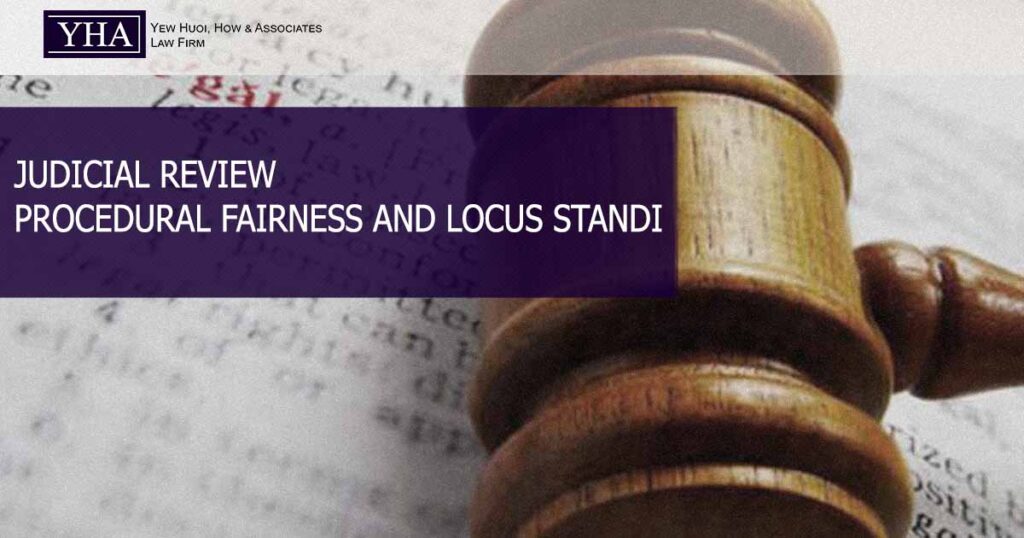This excerpt illuminates the foundational principles of judicial review as outlined in Order 53 of the Rules of Court 2012. It highlights the criteria for challenging public decisions on grounds of illegality, irrationality, or procedural impropriety. Central to the discussion is the question of timing in judicial review applications, particularly in cases of procedural unfairness. The practical scenario underscores the significance of a “decision” by the relevant authority as a prerequisite for locus standi, drawing insights from the case of Hisham bin Halim v Maya bt Ahmad Fuad & Ors [2023] 12 MLJ 714.
- Principle of judicial review:
Order 53 of the Rules of Court 2012 outlines the procedural requirements for applying for judicial review. A decision related to the exercise of public duty or function can be subject to review on the grounds of illegality, irrationality, or procedural impropriety, as established in the case of Council of Civil Service Unions and others v Minister for the Civil Service [1985] AC 374 per Lord Diplock. - Issue: Timing of Judicial Review Applications in Cases of Procedural Unfairness:
The question arises as to when a judicial review application can be made against a decision, action, or omission that involves procedural unfairness within legal proceedings.- To invoke Order 53 of the Rules of Court 2012, a crucial prerequisite is the existence of a ‘decision’ made by the relevant public authority. In the absence of such a ‘decision’ any application for judicial review would be premature.
- Consequently, if there is no decision by a public authority, the applicant lacks sufficient interest or locus standi to initiate a judicial review application.
- To invoke Order 53 of the Rules of Court 2012, a crucial prerequisite is the existence of a ‘decision’ made by the relevant public authority. In the absence of such a ‘decision’ any application for judicial review would be premature.
- Illustrative scenario: As a result of X’s failure to comply with an interim order syariah court, the Y filed an application for leave to commence commital proceedings at Syariah High Court against the X. Leave was granted. X was required to show cause.
X filed an application for judicial review for an order to quash the contempt proceeding and to declare the Syariah High Court has no jurisdiction to hear contempt.
However, the hearing of the committal proceedings has not yet taken place. There was no decision by the Syariah High Court Therefore, the X does not have locus standi to make an application for judicial review. - Case Reference: Hisham bin Halim v Maya bt Ahmad Fuad & Ors (Majlis Agama Islam Selangor (MAIS), intervener) [2023] 12 MLJ 714

